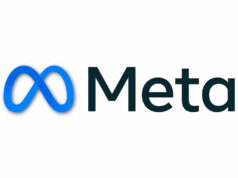For quicker processing of claims, hospitals should go paperless — HMO
by Mariel Alison L. Aguinaldo
The healthcare industry needs to move faster in adopting digital solutions for better operations and servicing, according to InLife Health Care, a health maintenance organization (HMO).
Some clinics and hospitals still bill their HMO claims on paper, which entails manual processing. This consequently lengthens their accounts receivable cycle. There are also doctors who hesitate to accept digital payments, preferring to still be paid in cash or in check.
“[Processing a check] takes time, and then it will have to be delivered. Right now that there’s a pandemic, it’s so hard to deliver the checks,” said Noemi Azura, president and chief executive officer of InLife Health Care, during
The aforementioned HMO has adopted digital solutions that cuts red tape. With a swipe of their membership card, a patient can quickly confirm their membership status and get approval for small coverage amounts. They can also file for reimbursements on their mobile application by uploading a photo of their receipt along with their request.
Technology also allows patients to order medicine on e-commerce platforms and consult their doctors through telehealth services.
“Before the pandemic, there was a very low take-up of telemedicine because people still preferred seeing their doctors face-to-face. But during the pandemic, there was acceleration in adoption… because they’re so afraid to go to the hospitals,” said Ms. Azura.
This accessibility extends to timely mental health interventions. According to research company Premier Value Provider Inc., the enhanced community quarantine triggered severe anxiety in 87% of Filipino millennials and Gen Z’s and severe depression in 62%.
To help the youth and other groups cope with these conditions, mental health organizations such as In Touch Community Services began offering web counseling sessions. A stress management program uses Zoom’s breakout room, whiteboard, and polling features to make it as interactive as possible. In Touch also holds webinars on well-being for the general public and training sessions for guidance counselors and psychologists who want to learn web counseling.
“Once connected with someone online, we will experience the other person and the relationship between us,” said Dr. Julian Montano, clinical supervisor at In Touch Community Services.
To hasten digital adoption within the healthcare industry, former Health Secretary Jaime Galvez-Tan, who now chairs the non-governmental organization Health Futures Foundation, suggested a mentoring program with young healthcare workers in charge of educating their senior peers.
The health-and-wellness webinar was part of a series of breakout sessions held during the Impact Hackathon, a virtual event that aims to create sustainable digital solutions.



